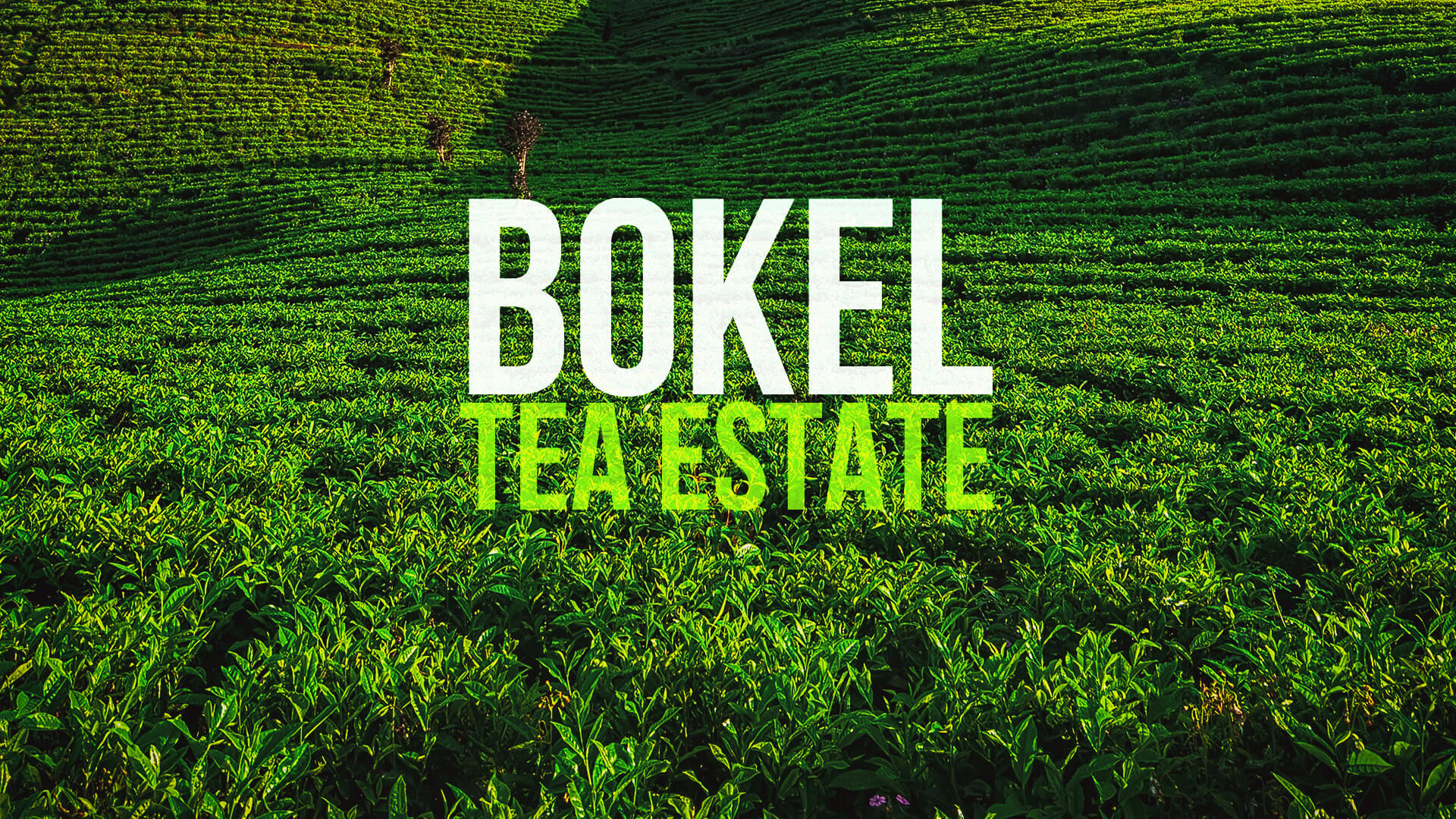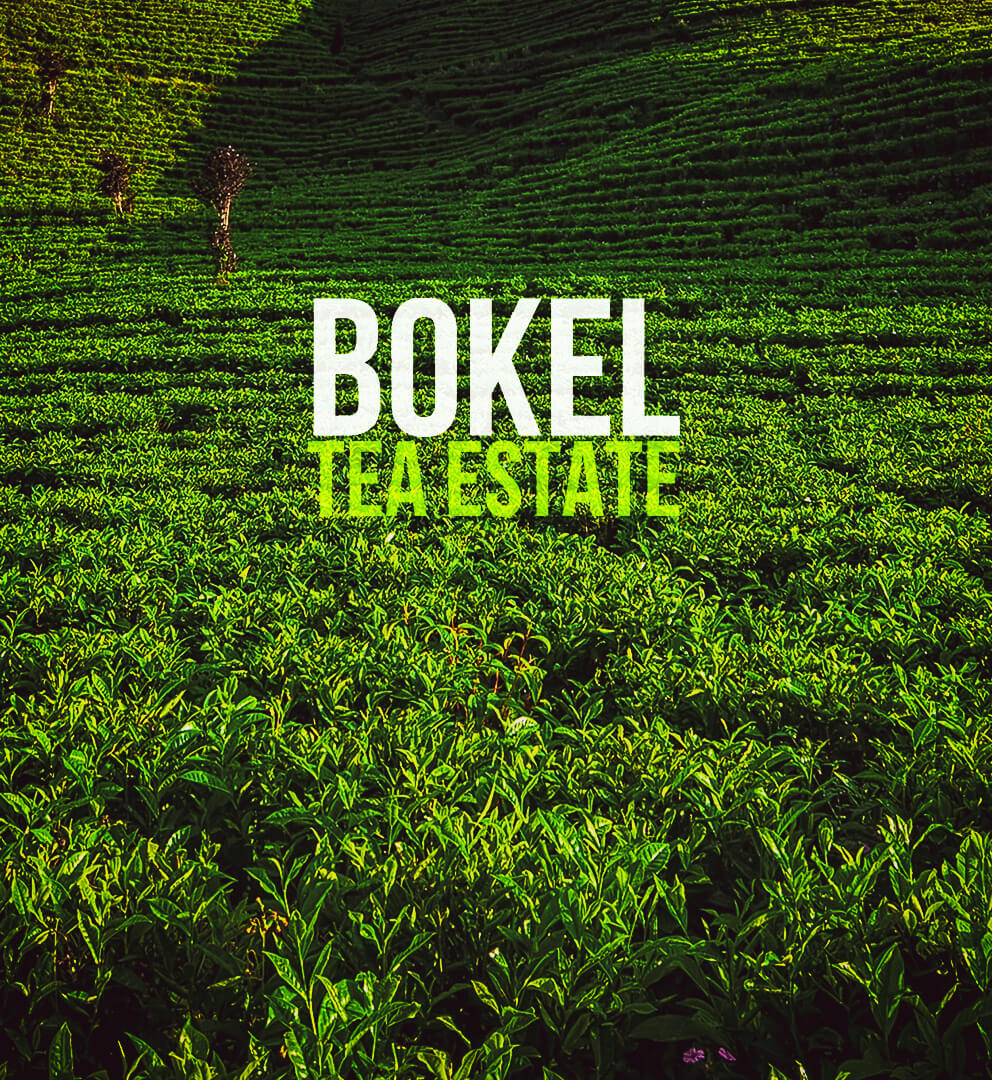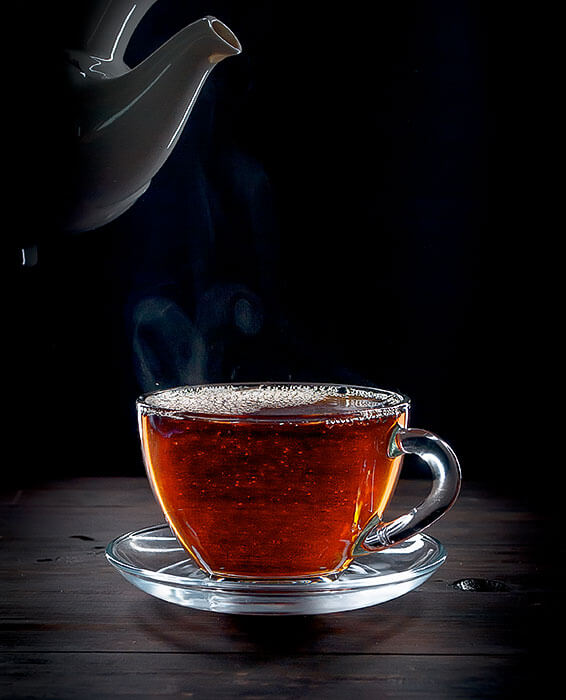

Dibrugarh, Assam
Location
750 Hectares
Area
1,725
Workforce
scroll to discover


Location
Area
Workforce
scroll to discover
Bokel is one of the most important and historically significant tea gardens of Assam.
In many ways, Bokel’s identity is indelibly linked with Jokai’s.
One of Bokel’s sub-divisions, Timona, was originally called “Jokai” and C.M.Tweedie (in his memoirs) remembers taking over “Jokai” from E.C. Vernon Browne when the latter went to manage Singlijan in 1924.
Bokel derives its name from the Assamese word "Bowkool", the local name for a tree with small fragrant spider-like flowers.
Bokel has always been the largest garden of the Jokai group and in many ways is considered the “engine room” of the company.
Bokel has always been the largest garden of the Jokai group and in many ways is considered the “engine room” of the company.
Well-known across the industry for its bright cups and heavy, gold-tipped leaves, Bokel teas form the backbone of several popular Orthodox Black Tea blends across the world.
It has a spicy nose and a cup that presents cocoa and honey notes that linger on the palate long after the last sip has ben savored.

Bokel is spread across 1,700 hectares of land area, and once included the area now taken up by the Dibrugarh Airport. When you land in Dibrugarh Airport, you are landing almost inside Bokel Tea Estate as the airport shares a boundary wall with the tea garden! Bokel has a unique ecosystem that blends the serene life of tea gardens with the increasingly bustling ways of the burgeoning Dibrugarh town. Boasting some of the most educated tea workers in Assam, the Bokel community has made several strides in successfully incorporating mechanization to improve field practices. Recycling is also a vital focus of the estate, with tea wastewater used to help the growth of cultivated bushes. Bokel is home to 1 hospital, 2 clubs, 3 temples, 2 churches and 4 football fields, 2 nurseries, 11 bungalows and 6 community clubs for workers’ recreation.

Follow & Share